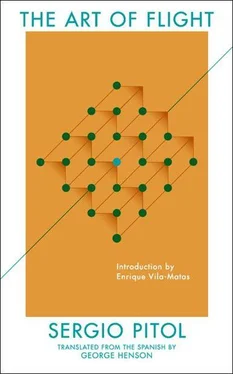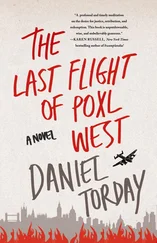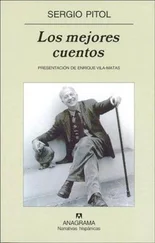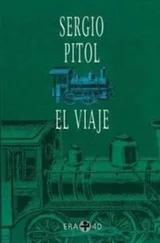16 JANUARY
Another day without being able to focus on my work! I have done nothing but read newspapers. Hours and hours of consternation. I seem to understand the situation less and less. I’ve read all kinds of editorials. I went through some excellent parodies by Carlos Monsiváis, his incisive criticism of José Córdoba and his disciple Salinas in El Financiero , and the visceral feelings of some journalists from other newspapers who seem almost to be calling for the final solution for the Indians, the guerrillas, and their handlers; the latter, according to one of them, are headquartered in the UNAM and the state of Michoacán, where they are devising new plots against the nation and other evil deeds and things of that sort. I was dizzy and very exhausted. I still do not understand much. Who encourages and supports rebellion? The Church in Chiapas expresses support for the indigenous…The Pope himself has declared himself in favor of peace and relief for the extreme poverty in which the Chiapas Indians are living.
18 JANUARY
It looks like things are on a good and fast track. The government has declared an amnesty and the rebel army is beginning to send signals that they could initiate contact and later negotiations. Monsiváis says that the Zapatista positions are quite realistic. Perhaps we’ll be at peace again soon. What will happen next? Will Colosio continue his electoral campaign? Will the many questions that have been posed be answered? I find it impossible to think about anything else.
19 JANUARY
…Since the first of January, I’ve not been able to do anything except read newspapers, watch the news, and talk about Chiapas.
21 JANUARY
I’m copying a communiqué by the Subcomandante Insurgente Marcos that has been discussed widely today. It has impressed me more than any of his other statements:
Until today, 18 January 1994, the only thing we’ve heard about is the federal government’s formal offer to pardon our troops. Why do we need to be pardoned? What are they going to pardon us for? For not dying of hunger? For not accepting our misery in silence? For not accepting with humility the enormous historical burden of contempt and abandonment? For having risen up in arms after finding all other paths closed? For not having heeded the Chiapas penal code, one of the most absurd and repressive in memory? For having shown the rest of the country and the whole world that human dignity still exists even among the world’s poorest peoples? For having prepared well and with conscience before beginning our uprising? For having brought guns to battle instead of bows and arrows? For having learned to fight before doing it? For being Mexicans? For being mainly indigenous? For calling on the Mexican people to fight by whatever means possible for what belongs to them? For fighting for liberty, democracy, and justice? For not following the models of previous guerrilla armies? For refusing to surrender? For refusing to sell out?
Who should ask for pardon, and who can grant it? Those who for years and years sat before a table of plenty and had their fill while we sat with death, so frequent and familiar to us that we finally stopped fearing it? Those who filled our pockets and our souls with promises and declarations? Or the dead, our dead, so mortally dead from “natural” death, that is from measles, whooping cough, dengue fever, cholera, typhus, mononucleosis, tetanus, pneumonia, malaria and other gastrointestinal and pulmonary niceties? […] Those who deny our people the gift and right of governance and self-governance? Those who refused to respect our customs, our culture, and our language? Those who treat us like foreigners in our own land and who demand papers and obedience to a law whose existence and justness we don’t accept? Those who tortured, imprisoned, assassinated, and disappeared us for the grave “crime” of wanting a piece of land, not a big piece, not a small piece, just a piece on which we can grow something to fill our stomachs?
Who should ask for pardon, and who can grant it?
The President of the Republic? The Secretaries of State? The Senators? Deputies? Governors? Mayors? The police? The federal army? The magnates of banking, industry, commerce, and land? The political parties? The intellectuals? Galio and Nexus? The media? Students? Teachers? Neighbors? Laborers? Farmers? Indigenous people? Those who died in vain?
Who should ask for pardon, and who can grant it? Well, that’s all for now.
Health and a hug, and with this cold both will be appreciated (I believe), even if they come from a “professional of violence.”
Subcomandante Marcos.
This statement left me even more perplexed. The letter exudes an aura of Dostoevskian religiosity entirely different from the verbal habits of Latin American guerrillas. I do not detect traces of Castro or the Maoists. Nothing like the Shining Path; nothing that recalls that archaic lexicon from the manuals of Nikitin or Konstantinov, which were used so often in my student days. The statement by Aspe, the finance secretary, saying that we Mexicans had invented a great myth, that of our misery, is shattered before the torrent of extreme, excessive, and desperate poverty that the cameras capture every time they do a report from Chiapas — that is, every day — as well as the statements by Salinas about our entrance into the First World through the Free Trade Agreement. Who the hell is the masked Subcomandante! A seminarian, perhaps?
22 JANUARY
…A photo on the cover of the magazine Macrópolis sums Chiapas up for me: a child of seven or eight years old carrying a bundle of firewood on his back, his head toward the ground, a rope across his forehead, a mecapal , sustains the load. The picture moves me more than any description. All the images that appear on television nowadays, especially of children and old people, are terrible. It is the hidden world we were barely able or wanted to recognize. The press says that Marcos may be a Jesuit, a former student of the Polytechnic, a student expelled from the National University, a Guatemalan, Salvadoran, Venezuelan guerrilla, a retired professional soccer player.
23 JANUARY
I just saw an account of the events in Chiapas on television. Subcomandante Marcos, as well as the other rebel officers, insist that their army has been preparing for several years and that they have people positioned in many parts of the country, perhaps in order to look bigger in the eyes of the nation and to arrive at the negotiating table with a force otherwise difficult to verify. Because Marcos is apparently now willing to hold talks with the government, or at least that’s what I thought I heard. It’s at moments such as this that I despise my deafness. My impression, contrary to what some of my friends think, is that the solution to the conflict is still distant and so far the guerrillas have been able to play government just like they wanted, like a cat with a mouse. There is a lot of talk that the PRI will have a big surprise before the end of the electoral campaign. At least the greyish outlook we’ve lived with in recent years has completely changed. We find ourselves suddenly in something that, for better or for worse, is a different Mexico. In La Jornada , Octavio Paz criticizes intellectuals for their irresponsibility when speaking about the events in Chiapas. I have the impression it was a veiled rebuke of Carlos Fuentes for his recent statements about a first post-socialist rebellion. The reproachful tone at the beginning notwithstanding, it is an extremely nuanced text. Paz states that the Subcomandante’s letter of pardon moved him, and he recognizes that Mexican society, especially the landowners and politicians in Chiapas, owes a heavy moral debt to the Indians.
24 JANUARY
I watched the news this morning. Everything the President said about the path to peace being the only solution seemed farcical. In practice, they’ve begun to obstruct Camacho because he’s gained too much stature. Deep down, the politicians don’t give a damn about the country.
Читать дальше












